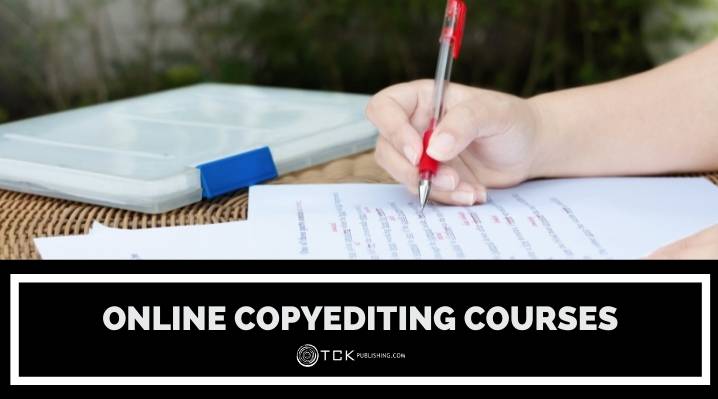
If you’re looking to advance your career as an editor or bulk up your resume with more valuable skills, you might consider taking a course in copyediting.
Copyediting is the process of revising written material to improve readability and quality. And while printed publications may be going out of style, copy editors are as essential as ever in the age of digital writing.
The question is: do you need to get certified to work as a copy editor? The short answer is no, but we’ll explore the pros and cons of earning a copyediting certificate in this post, and offer recommended copyediting courses with and without certificates.
University Copyediting Courses (for Certificate)
The following are online university programs that offer certificates in copyediting. While university courses offer a very comprehensive look at the subject, they also tend to have more rigid schedules and deadlines, which is important to consider when choosing a program.
1. UC San Diego
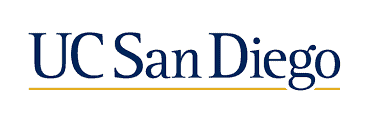
This 12-month online program provides students with a thorough understanding of the skills needed for a successful copyediting a career. It’s ideal for those interested in an editing career and anyone who produces content.
UC San Diego notes that the average student spends three hours online and six hours offline per course each week.
Here’s a bit of what you’ll cover:
- fact-checking
- editing for logic, sexism, and plagiarism
- digital skills for editors
- editorial processes, using style sheets, and editing with Microsoft Word
- legal considerations
- best practices for a productive author-editor relationship
- career-related information
Price: $2,566
2. University of Chicago
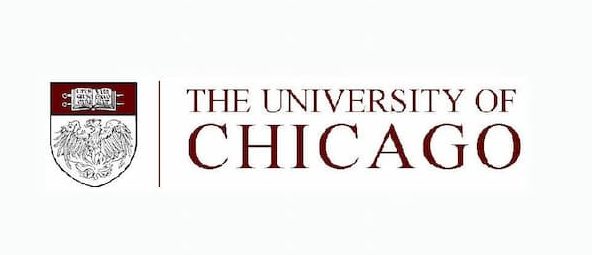
The University of Chicago invented the Chicago Manual of Style, so it’s no surprise that they offer one of the best editing programs.
Whether you’re looking to enter the publishing industry or brush up on your existing skills, this program can help you as you progress through four core courses and an elective.
Here’s some of what you’ll cover:
- manuscript editing
- grammar essentials for professionals
- editing electronically
- strategies for approaching an editing project
- how to manage and navigate the publishing process
Price: $6,500
3. Emerson College
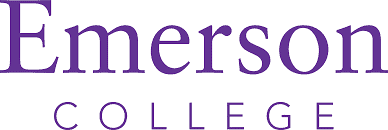
Emerson College offers a copyediting program that covers copyediting fundamentals and industry-related topics, including how to edit for grammar, style, accuracy, and precision.
With Emerson’s remote copyediting courses, you’ll learn how to:
- review grammar, spelling, punctuation, style, and readability
- fact check
- identify typographical errors
- express ideas clearly and logically
- set style and editing standards for company documents
Price: varies, individual courses range from $125–$375; 45.5 hours required
Professional Associations (for Certificate)
As an alternative to university courses, some professional associations also offer copyediting courses with certificates. Many allow students to take single courses, which is ideal for students looking for just one or two specific topics.
4. Editorial Freelancers Association
The Editorial Freelancers Association is a professional organization that offers a variety of courses for editors and writers alike.
Examples include:
- Advanced Line Editing for Fiction & Creative Nonfiction
- Proofreading and Copyediting with The Chicago Manual of Style
- Book Mapping for Developmental Editors
Price: $80–$300/course
5. Writer’s Digest Copyediting Certification Course
The Writer’s Digest copyediting course is a 10-week program that covers the fundamentals of grammar, form, composition, and advanced copyediting skills. Students participate in critiqued writing assignments and take quizzes along the way to help them prepare for the comprehensive test at the end of the course.
Key topics include:
- fundamentals of punctuation and grammar
- guidelines for form and composition
- how to follow style guides
- how to apply grammar rules for powerful writing
Price: $799
6. ACES: The Society for Editing
ACES: The Society for Editing has teamed up with The Poynter Institute’s News University to provide online training seminars with certificates.
One of these is the Poynter ACES Certificate in Editing, which covers essential skills and best practices of professional editing.
Topics include:
- the science of editing
- how to make writing clean and concise
- accuracy and verification in the digital age
- grammar, punctuation, and word use
Price: $75 for members, $150 for non-members.
Online Copyediting Courses (No Certificate)
If you’re not looking for a certificate but want to hone your skills, these affordable online copyediting courses may be right for you.
7. How to Become a Freelance Editor: Make Money Copy Editing

Experienced freelancer and former teacher Laura Pennington teaches this course on copy editing, which, in addition to teaching the technical skills, also shows students the ins and outs of starting a successful freelance editing business.
You’ll learn how to:
- start your own freelance editing business
- evaluate someone’s work and generate a quote
- market your editing business
- find editing jobs
- deliver great results that will keep your clients coming back
Price: $79.99
8. Good with Words: Writing and Editing Specialization
This copyediting course teaches students how to master word choice, improve structure and organization, and revise their work with the confidence to cut what’s unnecessary.
You’ll learn how to:
- use syntax creeatively
- add nuance to your sentences and slogans
- develop the habits you need to complete short- and long-term projects
- make writing more persuasive and creative writing
Price: Free
9. Editing Mastery: How To Edit Writing To Perfection
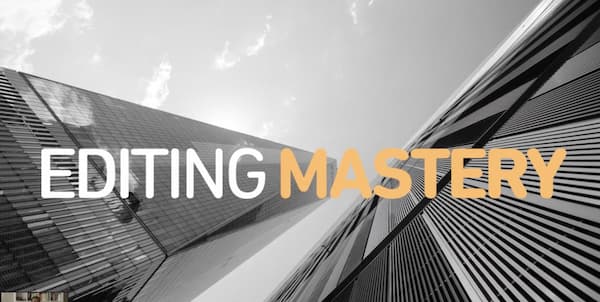
Former Wall Street Journal editor Shani Raja shares the secrets of the pros in this Editing Mastery course. You’ll learn the technique of “deep editing,” which will help you transform any nonfiction work into writing that’s bursting with energy.
You’ll learn how to:
- consider every aspect of a text to ensure the best quality possible
- professionally edit virtually any type of nonfiction writing
- improve your own writing and the writing of others
- evaluate and improve content, structure, style, and presentation
Price: $124.99
10. Writing and Editing: Word Choice and Word Order
This writing and editing course focuses on the power of words and how you can use and arrange them to make your writing more persuasive. It also highlights how words can change the decisions people make.
You’ll learn how to:
- be strategic with your syntax
- showcase your originality and write with a style no one else can reproduce
- arrange even complex points in a reader-friendly way
Price: $49.99
11. Translation Editing: A Practical Introduction
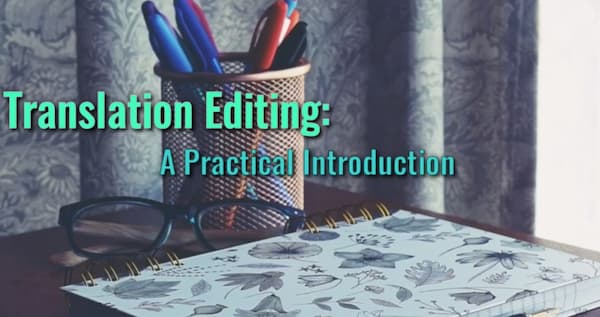
Despite huge advances in translation technology, most direct translations still need to be edited, even if they are accurate and coherent.
This course focuses on the best techniques for copyediting translations from other languages into English, but the principles and skills taught can be helpful for editors working in any language.
You’ll learn how to:
- copy edit and proofread the major aspects of language, including punctuation, grammar, idiom, and consistency
- how to communicate professionally with clients
- assess real examples of errors in translated fiction
Price: $39.99
Do You Need a Certificate To Be a Copy Editor?
You do not need a certificate to become a copy editor; however, a certificate from a reputable organization or association can certainly offer you a strong professional advantage, whether you’re looking to join a publishing company or attract clients to your freelance business.
It makes sense that many clients would prefer to work with someone who has an editing certificate, although this isn’t always the case. Many will make a hiring decision based on a referral, work sample, or editing test.
If you’re just looking to expand your skill set, then you might opt for a less expensive, non-certification online course that will still teach you valuable tips and information.
More Editing Tips
For more ways to brush up on your editing skills, check out our guide to self-editing and revising your own work.
Or, if you’d prefer to leave it to the pros, review our tips for hiring an editor so you can ensure a productive working relationship.
Did you find this post helpful? Let us know in the comments below!
If you enjoyed this post, then you might also like:
- Developmental Editing: What to Look For and How to Find the Right Editor
- Understanding the Different Types of Editing
- How to Become a Book Editor: Everything You Need to Know
- How to Proofread: Tips for a Cleaner Draft
As a blog writer for TCK Publishing, Kaelyn loves crafting fun and helpful content for writers, readers, and creative minds alike. She has a degree in International Affairs with a minor in Italian Studies, but her true passion has always been writing. Working remotely allows her to do even more of the things she loves, like traveling, cooking, and spending time with her family.

Hello. I enjoyed this article; thanks for producing it. I am a man in my mid-fifties and, except for my bachelor’s degree in Humanities (achieved in my forties), I have zero professional background in writing. Also, over the course of the pandemic, all I have done is parent a young child and clean the house, and I feel that I have become somewhat cognitively deficient.
Still, I have always wanted to pursue both writing and editing as a career…especially editing at this point, as I don’t even read anymore, much less write. Nevertheless! I believe it’s possible that I could successfully achieve a reasonable level of expertise in editing, such that I could have a career in this field.
But my confidence wavers. Since school, I have never spoken to anyone but my wife about these ideas. I don’t want to invest in a class like the ones you’ve listed without talking to someone who could honestly tell me “No, you’re fooling yourself; don’t waste your time” or, “Yeah, I think you could do this and make a living.” Now I’m asking for advice in the comment field of a blog post: Who can I talk to?
Thanks very much, Kaelyn.
Hi Tony, thanks for sharing your story! I would recommend participating in a writer’s group. You can find an in-person one locally, using sites like Meetup, or you can go to some virtual meetings. This is a great way to meet other writers and get feedback on your writing. If you join such a group, you could also try editing the work of others and ask for feedback on that :)
Hi Kaelyn, so if I complete a certificate program then I can call myself a Certified Copy Editor on LinkedIn?
Hi Cee, thanks for your comment! As Sonia pointed out in her comment below, earning a certificate is not necessarily the same as being certified. Technically, you should get the certification from a recognized, professional institution if you want to call yourself certified.
Hello, I enjoyed your article. It listed a number of good resources for learning various aspects of copyediting. However, using certificate and certification interchangeably will lead to confusion. Earning a certificate is not the same as being certified by an independent professional body. I have a co-worker who takes various courses and, after receiving certificate, insists on putting that she is certified in [insert area] on her resume. It is misleading and some potential employers may consider it to be lying on a job application.
Hi Sonia, you’re right, thank you for pointing that out. I’ll update the post for clarity :)
I am grateful for all of the information here! I am at a crossroads in my career/life and have been considering working as a proofreader/editor for some time. I have a bachelor’s degree in Literature and have worked in the publishing world, but not in editing. That was always my dream, but I decided to raise my two kids full-time. I love to read and have considered writing. If I decide on taking one of the courses for certification, would that give me the skills to confidently accept jobs in this field? Thank you for your time!